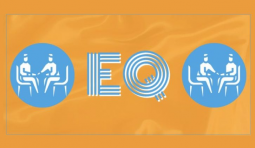Is it Time to Elevate Your Emotional Intelligence?

My first job in corporate America was in a human resources department. We received a call from a hotel in a major city, asking us never to book a certain executive from our company in their hotel again.
What a Health Scare Can Teach You about EQ and Social Awareness

This past year, I have had two skin cancers surgically removed from my forehead — too much Grand Canyon sun in the summer. As a follow-up treatment, my dermatologist prescribed a chemotherapy cream to eradicate any precancerous cancer cells on my face.
To Be an Effective Leader, Sometimes You Need to Give Yourself a Time Out
-000059818772_Full.jpg)
I had just finished a difficult meeting with our legal team about an infringement on our company’s copyrights. I came into my next meeting without signaling to my team what I was feeling in the moment, nor did I take the time to ground myself and shift out of my current emotional state.
When You Are Attacked, Why Do You Attack Back?Six Questions for Uncovering the Source of Your Negative Emotional Reactions

I was recently teaching a class on emotional intelligence when a participant proclaimed, “If you could just help me understand why I attack others when they attack me, this class would be worthwhile.”
Can Managing Your Expectations Improve Your Emotional Intelligence? 12 Expectations That Impact Your Results

Did you know that one of the biggest reasons people are unhappy in any given situation is their unmet expectations? How do our expectations contribute to our emotional responses? Our expectations are based on our values—what is most important to us.
12 Tips for Improving Emotional Control

Recently my college-age son hit a large piece of asphalt while driving our 1997 Toyota Avalon down a country road at night. The impact against the undercarriage caused the airbags to deploy and shatter the car’s windshield. Thankfully, except for a concussion, my son was not seriously hurt. Days later, when talking with him about the accident in person, my initial feelings of gratitude turned to worry about the cost of fixing the car, and disappointment and anger due to his lack of judgment.
How Easily Do You Take Offense? Seven Strategies for Maintaining Your Cool

Jane was sitting in an online meeting where current deadlines were being discussed among team members. At the close of the meeting, Jane’s manager asked if anyone had any other concerns that needed to be addressed.
Jane broke the team’s silence by stating that the IT group had committed to solve a software problem for one of her clients by July 1st.
How Emotionally Intelligent Are You Really?10 Questions for Assessing Your Ability to Keep Your Cool

A few weeks ago I was taking my son to school in the midst of a snow storm. As I pulled into the student drop-off at the high school, I noticed a woman who was getting into her car as I was waiting to move forward. I was about up to her car when she got in, and started to back out. As there wasn't really room for her to pull out, so I pulled forward past her. Her rear lights went on and she started to back out just as I passed her.
Eight Tips for Dealing with Irrational People

After running the river for a number of years, my curiosity finally got the best of me. I wondered what it would be like to swim one of the major rapids. With some hesitation, I put on an extra life jacket for extra buoyancy and jumped into Hermit Creek Rapid.
10 Things to Avoid When Resolving Conflict

Recently I went to a local restaurant to pick up an online food order. When I arrived to retrieve our order, it wasn’t ready, so I took a seat in a booth to wait. Not far from me were two friends who were having a heated and animated conversation about who the best candidate for president would be.
Managing Emotions in the Workplace

I recently had a team ask me if emotional displays were appropriate in the workplace. When I asked them what they meant, they shared with me that one member of their team would sometimes cry when discussing topics that were relevant to his or her work.
I took the time to explore the situation with the person. I concluded that his or her behavior resulted because some team members didn’t see the issue in the same way or feel as passionately as they did about the situation that was being discussed.
When we consider the appropriateness of emotional displays, the expression of emotion could be placed along a continuum from aggressive or “hot” to passive or “cold.” Obviously when someone begins to shout, demean, or use derogatory terms, the person who is confronted by such behavior will usually respond in two ways: they will respond in kind and meet “hot” emotion with “hot” emotion, or they will completely shut down.
How Can You Increase Your Emotional Intelligence?

Everyone has had to deal with a difficult challenge, the poor performance of others, or something that didn’t go as planned. When such a situation occurs, we may begin to experience an emotional reaction.
10 Advantages that Result from Increasing Your Emotional Intelligence

I recently gave a speech on the topic of EQ to an audience of over 1,000 people. After my presentation, I went to lunch along with the participants. Sitting at the table just behind me were two women who struck up a conversation about my presentation. I couldn’t help but eavesdrop a bit. “Look! It’s him,” one woman said
10 Tips for Defusing Defensiveness

It is not uncommon as we interact with others for individuals to become emotional or defensive in the moment. When this occurs you must remember that their reaction says more about them than it does about you. Why? Because their feelings or reaction were created by them. An individual’s emotional response originates in the negative interpretation or judgment that they are assigning to whatever you are either saying or doing.
For example, have you ever become frustrated with someone who has promised to provide you something that you need by a certain deadline and they frequently fail to deliver? It is...
What People Wished Their Leaders Knew

During my years as a consultant, I have often had people say to me, “I wish my leader knew …” to which I would encourage the individual to speak up and raise an issue of real concern so things might improve. When I did this, I often got the following responses:
“It won’t make a difference.”
“I don’t want to get in trouble.”
“It will just make them mad.”
Whatever the excuse for not speaking up, I noticed that most people were afraid of the consequences. Perhaps they thought negative things would occur because of the team atmosphere. However, I found that it didn’t...




-000059818772_Full.jpg)











